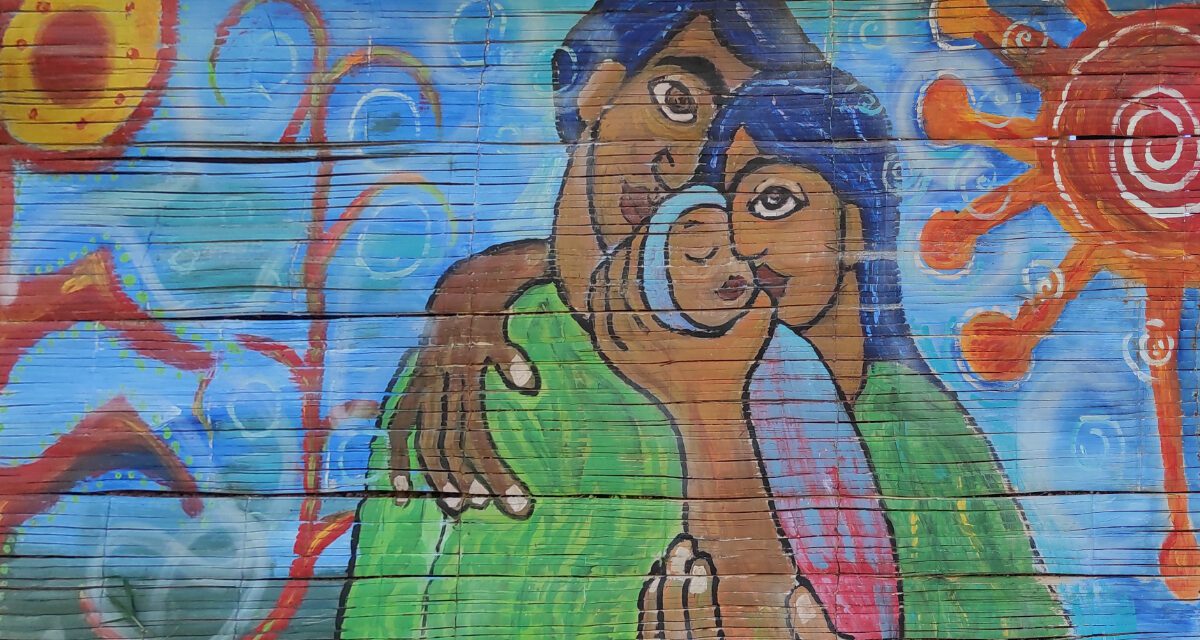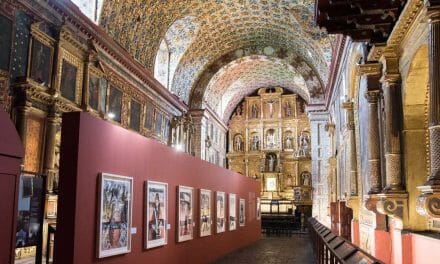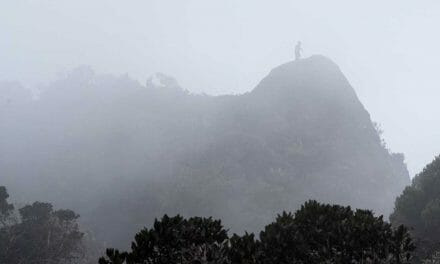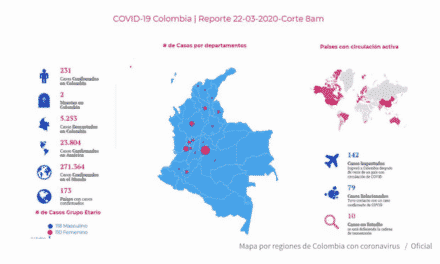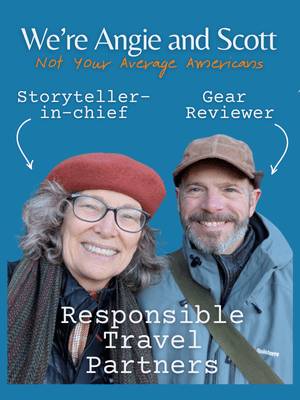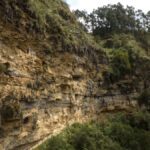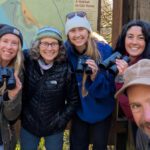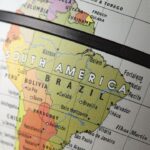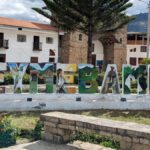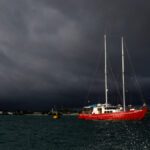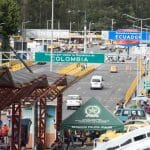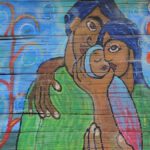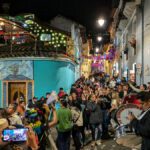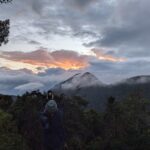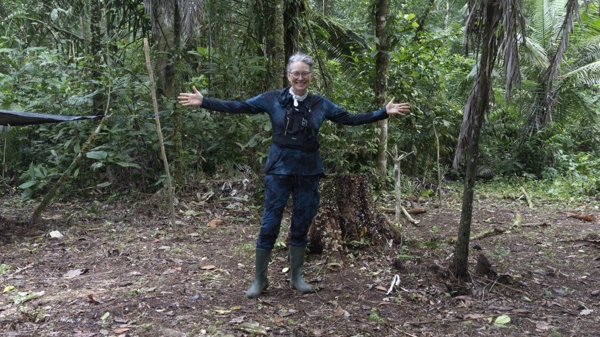First published on November 18, 2025 • Last updated on November 18, 2025
This page may contain affiliate links; if you purchase through them,
we may receive a small commission at no extra cost to you.
Connecting with nature, community, and ancestral wisdom in Colombia
From the moment I arrived in Cali, I was embraced by its warm energy and the richness of its cuisine, shaped by the traditions of Colombia’s Pacific region. That’s where I met Lina Bautista, a passionate advocate for regenerative tourism and an expert in birdwatching. With her open smile, she invited me to experience a journey that changed how I think about travel.
After a delicious meal at Karmela Cocina—a restaurant blending African and mestizo traditions with an innovative twist—we headed to a destination that left a lasting impression: Finca La Dicha.
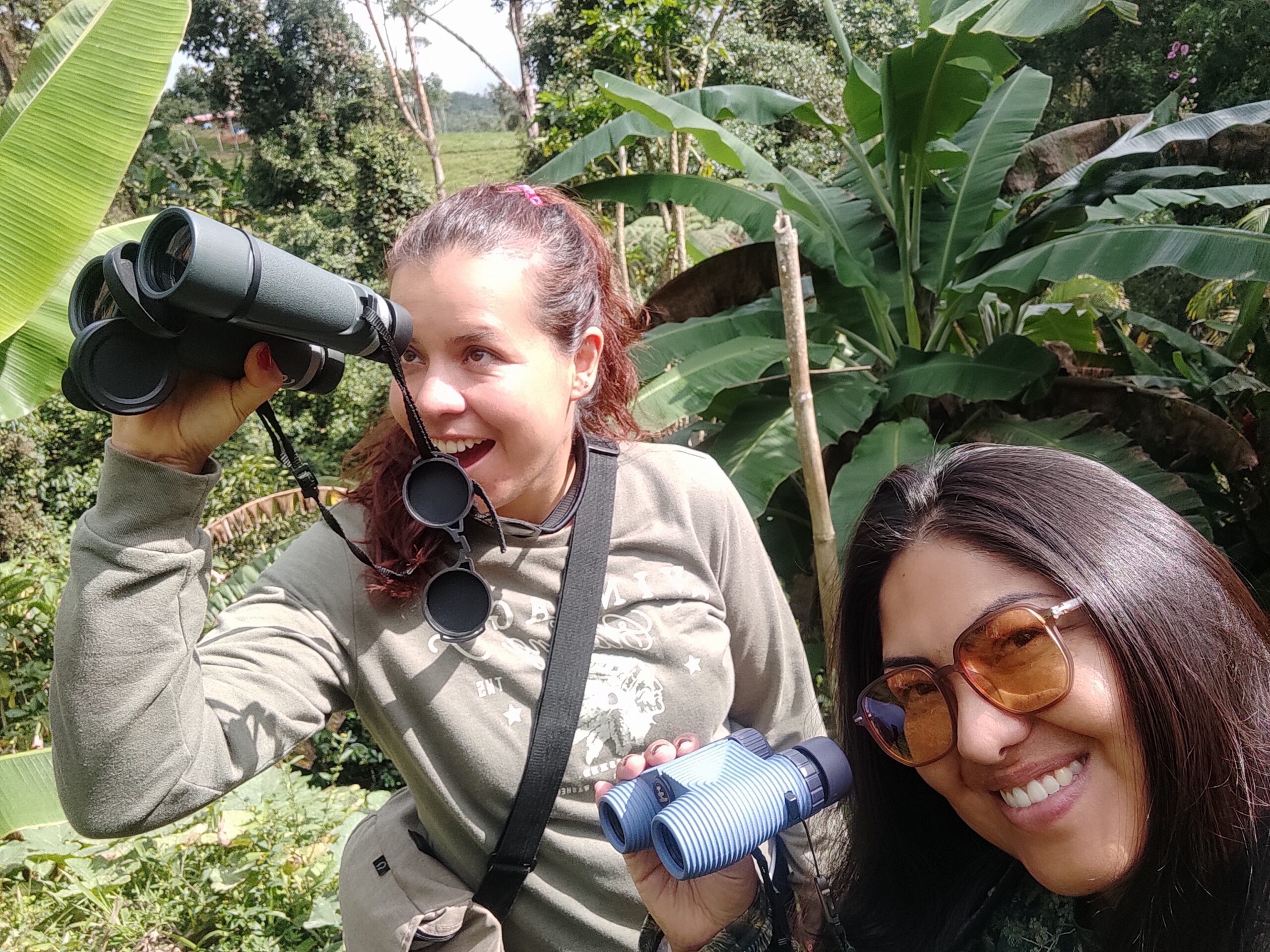
Finca La Dicha: A Regenerative and Welcoming Refuge
Less than an hour from Cali, nestled among coffee farms and forest, La Dicha is more than a farm—it’s a sanctuary where people and nature live in harmony.
With her deep knowledge of biodiversity, Lina showed me every corner of this magical place. She shares the space with animals like Junior, a friendly pig, along with other farm and wild creatures who thrive in this generous ecosystem.
I slept surrounded by greenery and the cool mist of the forest and woke up to birdsong. On our walks, Lina and I birded, laughed, reflected, and were drawn into the beauty of the land—a balance she and her mother, Paulina, have cultivated with great love and care.
Regenerative Tourism: Giving More Than We Take
During my stay, Lina shared her approach to regenerative tourism, which goes beyond sustainability. It’s not just about preserving—it’s about healing, about giving more back to the land and local communities than we take.
Her project, Biotácora, brings this vision to life by curating meaningful experiences that connect travelers with biodiversity and local culture. In 2024, the Colombian Ministry of Commerce, Industry and Tourism awarded Biotácora the Medal of Tourism Merit in the category of Tourism Innovation for Change Management. A well-deserved honor that reflects the transformative nature of her work.
MERCADAGRO: Flavors, Scents, and Sustainable Tradition
One of the most memorable experiences was visiting the Agroecological Market of Dagua, known as MERCADAGRO. Lina and her mother guided me through this vibrant market, where local producers are deeply committed to sustainable farming.
I tasted fruits and vegetables grown without chemicals and learned about traditional products like Quereme flower (Lantana camara), used in soaps and colognes for its relaxing and medicinal properties.
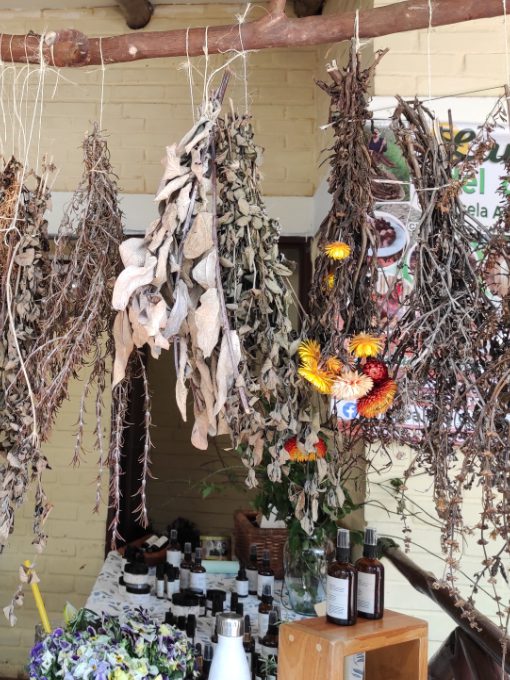
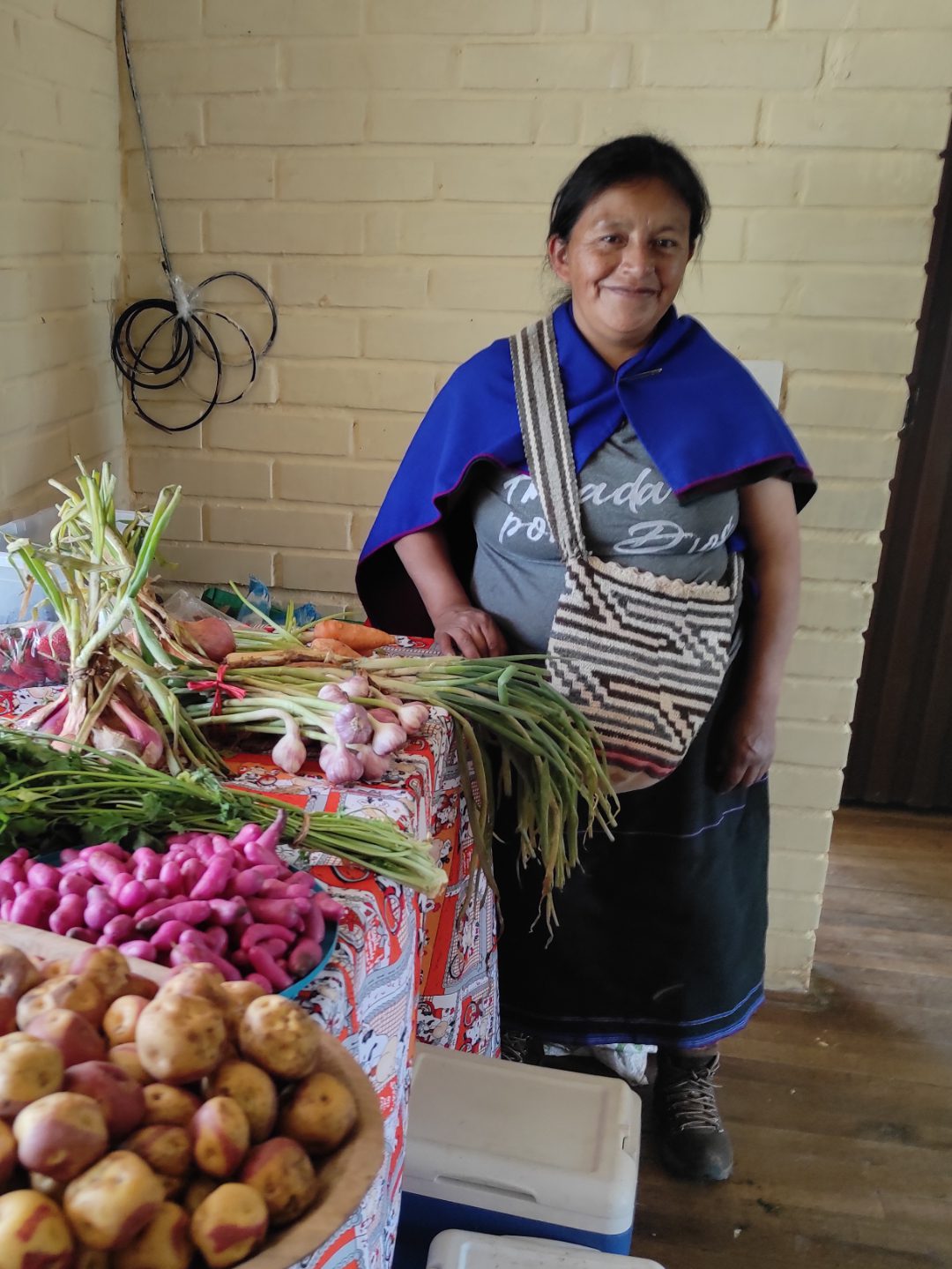
I was completely captivated by Hierba Buena Herbolaria, a small business crafting essential oils from plants unfamiliar to me, like prontoalivio (Clerodendrum serratum), known for its anti-inflammatory and calming properties, as well as more familiar ones like lavender. I fell in love with their scents and healing qualities—and took home as much as I could carry. Now, I’m secretly hoping I run out, so I have the perfect excuse to return.
As we wandered the stalls, we admired bird-shaped crafts whose curious eyes seemed to follow us. We paused for a delicious coffee in a charming corner of the market, and thanks to Paulina’s sweet tooth, we paired it with an unforgettable dessert.
The market’s thoughtful decor invited us to slow down and reflect. This space is a beautiful reminder that ancestral traditions and modern sustainability practices can live side by side—if we treat our land with care.
WAMBID Community: Ancestral Knowledge and Collective Wisdom
The day still held more surprises. We crossed paths with the Maestra of the WAMBID community, who couldn’t hide her joy upon reuniting with Lina and her mother. With heartfelt generosity, she invited us to lunch—an unexpected opportunity to learn more about the powerful project she leads.
We were later joined by José Luis, who shared vivid memories of living in Ecuador in 1999, including the eruption of the Guagua Pichincha volcano and the breathtaking landscapes that still live in his mind.
I never imagined that communities like this still existed—places where daily life is guided by a meaningful philosophy of harmony and reciprocity. WAMBID is a living school of ancestral wisdom, where people from many backgrounds come together to learn, contribute, and live in community. Their model is rooted in farming, harvesting, recycling, reusing, and shared labor, where collective effort brings collective benefit. Here, ancestral worldview and modern sustainability are seamlessly intertwined.
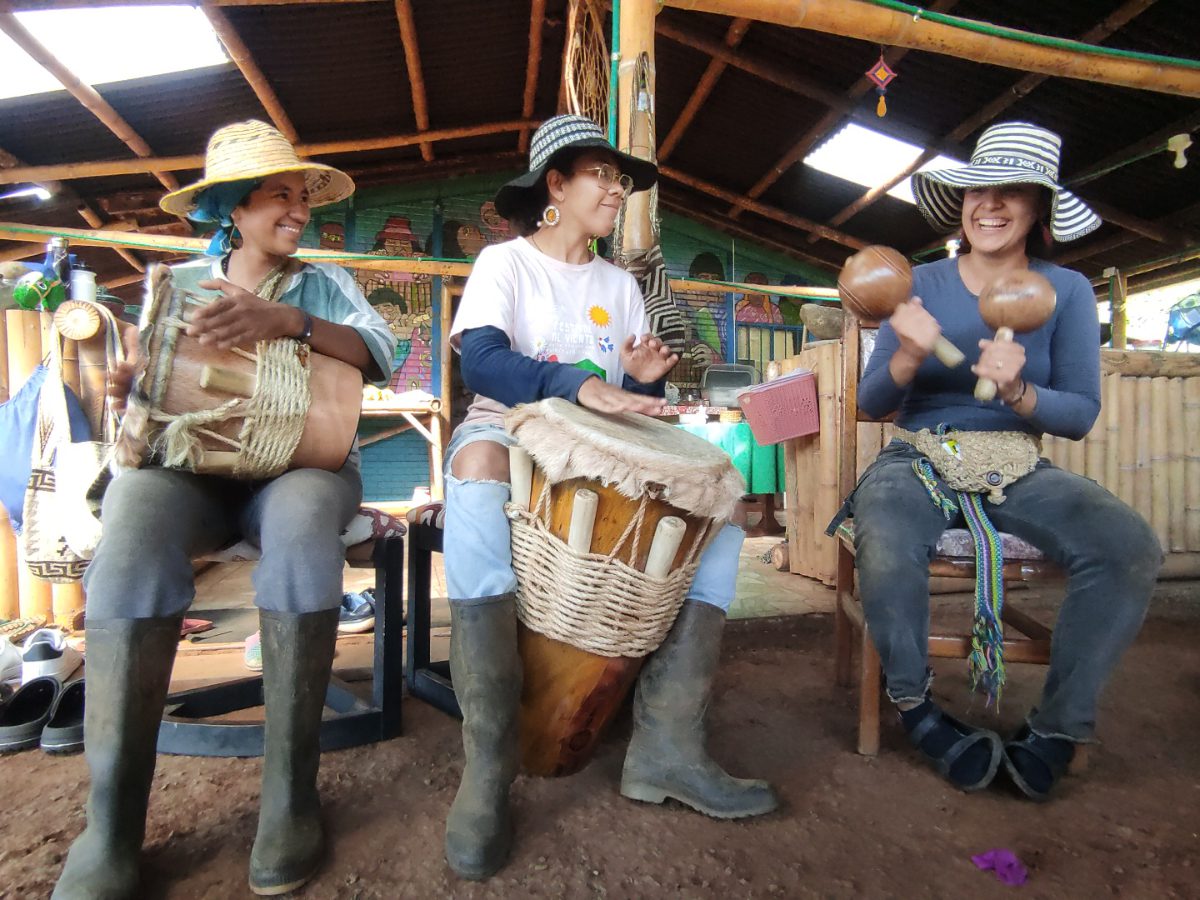
From learning about traditional medicine to reflecting on the connection between humans and the natural world, the experience opened a door to deep knowledge rarely found in books.
Lunch was a true delight for the soul, made with fresh ingredients and loving care. As the day came to a close, three talented women surrounded us in rhythm and song, performing a son del Pacífico—a traditional Afro-Colombian musical style full of percussion and warm vocals. The moment was electric, filled with joy and spirit, and left a lasting impression on my heart.
Gratitude and a Promise to Return
Back at La Dicha, as I packed my things, I reflected on everything I had experienced in just 48 hours. This journey wasn’t just an adventure—it was a personal transformation.
Lina and her mother Paulina reminded me that conscious travel is possible. Travel that builds, heals, and connects. La Dicha is more than a destination—it’s a refuge for the soul and a reminder that every step we take can contribute to a more just and sustainable future.
I left with a full heart and a promise to return. Because beyond the landscapes and the flavors, what stays with you are the connections—with nature, with people, and with yourself.

